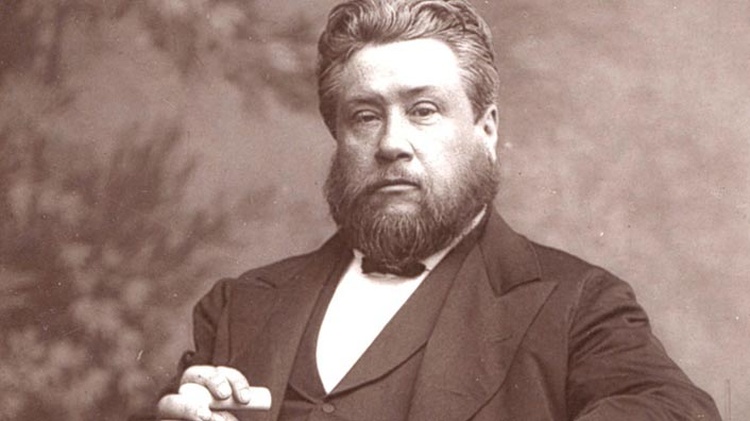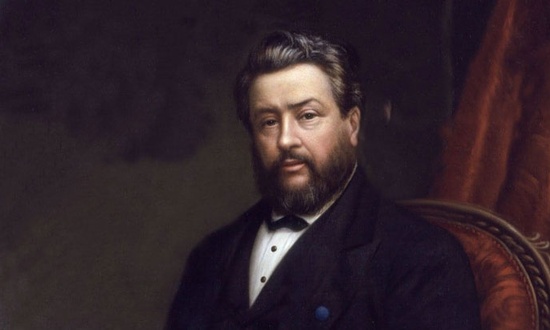The merits of a theology that advocates belief in Scripture’s revealed truths concerning God and man...even when we can’t reconcile those truths.
Nineteenth century London pastor, preacher and writer Charles Haddon Spurgeon was a Calvinist. As such, he was opposed by anti-Calvinists and a variety of non-Calvinists. He recognized their salvation and sincerity, but believed their view of God was often too small, and hence their view of man too big.
Spurgeon’s big view of God motivated him to take seriously God’s commands to reach out to the needy. He had a deep concern for caring for the poor and spreading the gospel. Spurgeon built seventeen homes to help care for elderly women, and a large school for hundreds of children. Spurgeon and his church built homes for orphans in London, rescuing them from starvation and vice on the streets. He tirelessly preached the gospel and encouraged his church to reach out to the lost, extending to them the gospel of Christ.
For these good deeds, Spurgeon was aggressively opposed by another theological group: the hyper-Calvinists, a fatalistic dogmatic Calvinist minority. Among other things, they disdained his practice of indiscriminately preaching the gospel to the unsaved, and inviting people in meetings to come forward or otherwise respond to the gospel. This struck them as putting salvation in man’s hands rather than recognizing it was in God’s. Spurgeon believed salvation was in God’s hands, but that men needed to embrace it, and that God wanted men to hear the gospel and wanted him to preach it. (See Iain Murray’s Spurgeon vs. Hyper Calvinism: The Battle for Gospel Preaching. I’m indebted to Murray for about half of these citations from Spurgeon.)
Concerning 1 Timothy 2:3-6, especially “God desires all men to be saved and to come to the knowledge of the truth” and “Christ Jesus, who gave himself a ransom for all,” Spurgeon said something dramatically different than the hyper-Calvinists:
What then? Shall we try to put another meaning into the text than that which it fairly bears? I think not. You must, most of you, be acquainted with the general method in which our older Calvinistic friends deal with this text. ‘All men,’ say they that is, ‘some men’: as if the Holy Ghost could not have said ‘some men’ If he had meant some men. ‘All men,’ say they; ‘that is, some of all sorts of men’: as if the Lord could not have said ‘All sorts of men’ if he had meant that. The Holy Ghost by the apostle has written ‘all men,’ and unquestionably he means all men. I was reading just now the exposition of a very able doctor who explains the text so as to explain it away; he applies grammatical gunpowder to it, and explodes it by way of expounding it. ... My love of consistency with my own doctrinal views is not great enough to allow me knowingly to alter a single text of Scripture. I have great respect for orthodoxy, but my reverence for inspiration is far greater. I would sooner a hundred times over appear to be inconsistent with myself than be inconsistent with the word of God.(Metropolitan Tabernacle Pulpit, 26: 49-52)
Spurgeon didn’t try to reconcile every paradox or apparent contradiction in the Bible. He said:
That God predestines, and that man is responsible, are two things that few can see. They are believed to be inconsistent and contradictory; but they are not. It is just the fault of our weak judgment. Two truths cannot be contradictory to each other. If, then, I find taught in one place that everything is fore-ordained, that is true; and if I find in another place that man is responsible for all his actions, that is true; and it is my folly that leads me to imagine that two truths can ever contradict each other. These two truths, I do not believe, can ever be welded into one upon any human anvil, but one they shall be in eternity: they are two lines that are so nearly parallel, that the mind that shall pursue them farthest, will never discover that they converge; but they do converge, and they will meet somewhere in eternity, close to the throne of God, whence all truth doth spring. (New Park Street Pulpit, 4:337)
Spurgeon warned against theologies that attempt to reconcile, by means of shortsighted human logic, every apparent biblical inconsistency:
Men who are morbidly anxious to possess a self-consistent creed, a creed which will put together and form a square like a Chinese puzzle, are very apt to narrow their souls. Those who will only believe what they can reconcile will necessarily disbelieve much of divine revelation. Those who receive by faith anything which they find in the Bible will receive two things, twenty things, ay, or twenty thousand things, though they cannot construct a theory which harmonizes them all. (“Faith,” Sword and Trowel, 1872)
Both Arminianism and Calvinism sometimes ignore or minimize one teaching of God’s Word because they can’t understand how it fits with another. So they choose between them, instead of believing both. Some embrace God’s sovereignty, then redefine human choice and responsibility in a way that makes it no longer meaningful choice or meaningful responsibility. Some embrace human free choice and redefine God’s sovereignty and election in light of it, reducing God’s “sovereignty” to merely seeing in advance that people will choose him, so then based on their foreseen decisions, he “chooses” them; or seeing what bad people will do but being unable to stop them, God is forced to try to make the best of it. (As opposed to “You intended it for evil, but God intended it for good,” Genesis 50:20). More recently, with Open Theology, God is actually said to be unable to see in advance exactly what choices people will make! (What’s next? God is too tired of this big job of running the universe, and he needs us to take the throne to help keep things going?)
Scripture reveals that God’s will is effective and He is sovereign in all things and that man is free and responsible for all his actions. Spurgeon wrote, “Both are true; no two truths can be inconsistent with each other; and what you have to do is to believe them both.”(New Park Street Pulpit, vol. 4, 343.)
In an early sermon on “Sovereign Grace and Man’s Responsibility” Spurgeon introduced his subject this way:
The system of truth is not one straight line, but two. No man will ever get a right view of the gospel until he knows how to look at the two lines at once...Now, if I were to declare that man was so free to act, that there is no presidence of God over his actions, I should be driven very near to atheism; and if, on the other hand, I declare that God so overrules all things, as that man is not free to be responsible, I am driven at once to Antinomianism or fatalism. That God predestinates, and that man is responsible, are two things that few can see. They are believed to be inconsistent and contradictory; but they are not. It is the fault of our weak judgment...it is my folly that leads me to imagine that two truths can ever contradict each other. (New Park Street Pulpit, vol. 4, 337).
Years later, in another sermon, Spurgeon said,
I believe in predestination, yea, even in its very jots and tittles. I believe that the path of a single grain of dust in the March wind is ordained and settled by a decree which cannot be violated; that every word and thought of man, every flittering of a sparrow’s wing, every flight of a fly...that everything, in fact is foreknown and foreordained. But I do equally believe in the free agency of man, that man acts as he wills, especially in moral operations — choosing the evil with a will that is unbiased by anything that comes from God, biased only by his own depravity of heart and the perverseness of his habits; choosing the right too, with perfect freedom, though sacredly guided and led by the Holy Spirit...I believe that man is as accountable as if there were no destiny whatever...Where these two truths meet I do not know, nor do I want to know. They do not puzzle me, since I have given up my mind to believing them both.(Metropolitan Tabernacle Pulpit, vol. 15, 458).
Spurgeon also said,
It is my firm belief that everything in heaven, and earth and hell, will be seen to be, in the long run, part of the divine plan; yet never is God the author or the accomplice of sin...sin rests with man, wholly with man, and yet by some strange overruling force, Godlike and mysterious, like the existence of God, his supreme will is accomplished...to deny this truth because we cannot understand it, were to shut ourselves out of a great deal of important knowledge. (Metropolitan Tabernacle Pulpit, vol. 15, 458).
Spurgeon was first a Biblicist, and only second a Calvinist. (Though imperfect and capable of misinterpreting Scripture, for the most part he was led to his beliefs by Scripture, not Calvinism.) His Calvinism didn’t inhibit him, but inspired him to offer the gospel to all men. He believed that more sinners could be saved if the gospel was preached to them. He didn’t try to harmonize this with God’s election, since Scripture clearly teaches both. He believed his responsibility was to preach the gospel, and that God, in his sovereignty, would use both preaching and prayer to produce a greater harvest of souls. He had prayer meetings Monday nights, and before preaching services. His classic book The Soul Winner is still in print.
Graciously, Spurgeon acknowledged the need for love and kindness between sincere Christians with different doctrines. He also acknowledged that some (though far from all) theological differences were largely semantic:
But I do maintain there should be, and there must be if our churches are to be healthy and sound, a constant adherence to the fundamental doctrines of divine truth. I should be prepared to go a very long way for charity’s sake, and admit that very much of the discussion which has existed even between Arminians and Calvinists has not been a discussion about vital truth, but about the terms in which that vital truth shall be stated. (Metropolitan Tabernacle Pulpit, 6:395.)
Spurgeon recognized that both Arminians and Calvinists were correct in many of their understandings of Scripture, but their mistake was in choosing one set of truths over another, rather than accepting both regardless of their apparent contradiction. He attributed our lack of understanding to our finite and fallen minds, not to problems with God or Scripture. Spurgeon put it this way:
The Calvinist has said, and said right bravely, that salvation is of grace alone; and the Arminian has said, and said most truthfully, that damnation is of man’s will alone, and as the result of man’s sin, and of that only. Then they have fallen out with one another. The fact is, they had each one laid hold of a truth, and if they could have put their heads together, and accepted both truths, it might have been greatly for the advantage of the Church of Christ. These two doctrines are like tram lines that you can travel on with safety and comfort, these parallel lines—ruin, of man; restoration, of God: sin, of man’s will; salvation, of God’s will: reprobation, of man’s demerit; election, of God’s free and sovereign grace: the sinner lost in hell through himself alone, the saint lifted up to heaven wholly and alone by the power and grace of God. Get those two truths thoroughly engraven upon your heart, and you will then hold comprehensively the great truths of Scripture. You will not need to crowd them into one narrow system of theology, but you will have a sort of duplicate system. (Metropolitan Tabernacle Pulpit,41:500.)
Our desire for logical consistency, as we understand it, can become our God. Then we, not Scripture and not God, become our own ultimate authority. We end up ignoring, rejecting, or twisting Scripture that doesn’t fit our chosen theology. On the contrary, our theology should be a reflection of Scripture itself, and wherever Scripture teaches apparently contradictory ideas, our theology should embrace those same ideas, rather than resort to a consistency which rejects part of God’s revealed Word.
My Greek professor liked to say, “I would rather be comfortable with my Bible and uncomfortable with my theology, than comfortable with my theology and uncomfortable with the Bible.” Theology is a very good thing—as long as it is true to Scripture, and helps us understand it, and see it in its fuller picture. When theology replaces Scripture’s authority, and ends up obscuring Scripture and causing us to reinterpret it rather than accept it, that’s when it interferes with rather than illuminates God’s sacred revelation.
May we read Scripture and believe it, not explaining away what doesn’t fit our theology, but stretching our theology to embrace the full breadth of God’s revealed truth.
For more, see Randy's book hand in Hand: The Beauty of God's Sovereignty and Meaningful Human Choice.




